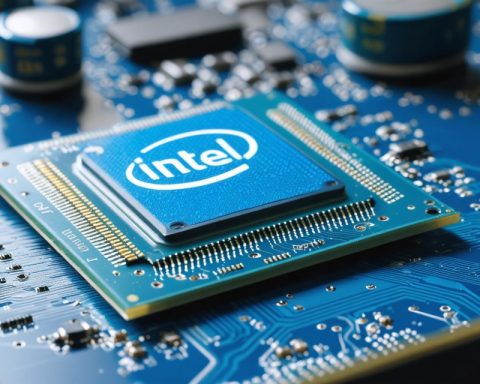- The article discusses the complex relationship between humans and artificial intelligence (AI), focusing on AI’s potential to outthink humans.
- Giannis Emiris, an expert in artificial neural networks, envisions a future where AI is seamlessly integrated into daily life, albeit with challenges.
- AI’s unchecked development can perpetuate biased decision-making due to the data it consumes.
- The European AutoFair project aims to create fairer, more impartial algorithms to overcome biases.
- Emiris emphasizes that robust research is essential for developing a just AI landscape, viewing AI as a tool with unmatched potential.
- His involvement in tech startups highlights innovative efforts, such as robotics in agriculture and advancements in autonomous driving.
- The article raises the question of whether AI will surpass humans or merely serve them in the future.
Beneath the tranquil canopy of Kifisia’s midday sun, the conversation treads cautiously around an enigmatic topic — the potential of machines outthinking humans. The quiet presence of Giannis Emiris—whose expertise unfurls across continents and fields, unraveling the complexities of artificial neural networks—adds gravitas to the discourse. He paints a vivid picture of a future where artificial intelligence (AI) evolves rapidly yet discreetly, becoming seamlessly integrated into every facet of our lives. The hum of progress promises innovation, but the narrative is far from utopian.
Emiris acknowledges that the unchecked proliferation of algorithms can perpetuate biased decision-making structures, sparked by the very data they consume. But a glimmer of hope radiates through his words, as he champions initiatives like the European AutoFair project. Its mission? To craft fairer, more equitable algorithms that transcend human prejudices.
Journeying through his own storied academic past, from Princeton to Berkeley and back to Europe, Emiris underscores a primal truth: powerful research fortifies a just AI landscape. Through this lens, AI is not a threat, but a tool of unequaled potential, offering pioneering solutions across justice, health, and public administration.
In the world of tech startups, Emiris stands at the helm of transformative projects, from Invigilating vines with spider-like robots to AviSense.AI redefining autonomous driving. Each innovation is a testament to the symbiotic relationship between human ingenuity and machine intelligence—even as it subtly challenges us to ask, “Are we paving a path toward a future where machines merely serve us, or one where they might one day surpass us?”
Unveiling the Future: How AI May Outthink Humans and Transform Our Lives
In the serene environment of Kifisia, the buzz around artificial neural networks and the potential of AI surpassing human intellect is palpable. Leading the conversation is Giannis Emiris, a well-respected expert in the field. With AI slated to become an integral part of daily life, there arise compelling questions about its implications and applications. Below, we delve into various areas surrounding AI, from its real-world uses to potential controversies and innovations, offering a comprehensive view of what may lie ahead.
How-To Steps & Life Hacks: Integrating AI into Everyday Life
1. Understand AI Basics: Start by familiarizing yourself with how AI works—consider online courses from platforms like Coursera or edX.
2. Utilize AI Tools: Incorporate voice assistants like Siri or Alexa for routine tasks.
3. Enhance Work Efficiency: Equip your business with AI-driven analytics tools for better decision-making.
4. Stay Informed: Follow AI news and updates via credible tech websites or podcasts.
Real-World Use Cases
– Healthcare: AI plays a role in predictive diagnostics and personalized medicine, enhancing patient care.
– Public Administration: Automating processes for efficiency and transparency in government services.
– Agriculture: AI-driven robots monitor crops and optimize resource use, as seen with initiatives like the vine-invigilating spider bots.
Market Forecasts & Industry Trends
Experts anticipate the AI industry will exceed $500 billion by 2024, with sectors like autonomous driving and smart home technology leading the way. The demand for ethical AI solutions is also on the rise, guiding investment and research endeavors.
Reviews & Comparisons
Comparing AI systems involves evaluating features, performance, and ethical considerations. For example, while Google’s AI products are user-friendly and scalable, IBM’s AI solutions focus more on enterprise-level integration and security.
Controversies & Limitations
A significant controversy surrounding AI is the perpetuation of biases within algorithms, which can influence decision-making processes in sectors like criminal justice and hiring.
Features, Specs & Pricing
– AI Platforms: Platforms like TensorFlow and PyTorch offer robust tools for developers at various price points.
– AI in Consumer Products: Smart assistants and AI-driven home devices range from $50 to $300, offering varying levels of integration and intelligence.
Security & Sustainability
The sustainability of AI technologies is gaining traction, with a focus on reducing the carbon footprint of data centers. Security remains paramount, necessitating ongoing advancements in AI-driven cybersecurity solutions.
Insights & Predictions
Future prospects suggest AI will become more intuitive, predicting and meeting human needs with minimal input. Innovations might lead to breakthroughs in fields like renewable energy and climate modeling.
Tutorials & Compatibility
– AI Development Tools: Extensive tutorials are available for developers looking to build AI applications using platforms like Apple Developer or Google Developers.
– Software Integration: Ensure compatibility with existing systems by leveraging APIs and cloud services.
Pros & Cons Overview
Pros:
– Automates repetitive tasks, increasing efficiency.
– Drives innovation across multiple sectors.
– Supports decision-making with data analytics.
Cons:
– Risk of job displacement in some industries.
– Ethical concerns regarding decision biases.
– High initial setup costs for businesses.
Actionable Recommendations
1. Be Proactive: Keep learning about AI and its implications for your industry.
2. Embrace Diversity: Encourage inclusive data sets to mitigate bias.
3. Monitor AI Trends: Use platforms like TechCrunch for the latest developments.
In conclusion, AI holds immense promise for a future aligned with human values and needs. By understanding its potential and addressing its challenges, we can help pave the way for an era where AI serves as a transformative force for good.










